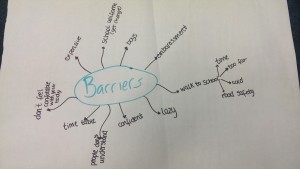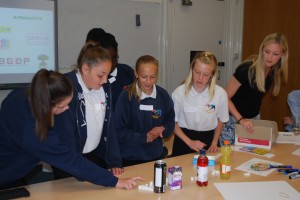Calling all teachers!
We've recently sent out an email with a round-up of various events happening this term (see below). If you would like to receive future editions please email ellie.cripps@bristol.ac.uk.
We've recently sent out an email with a round-up of various events happening this term (see below). If you would like to receive future editions please email ellie.cripps@bristol.ac.uk.
University of Bristol events and activities for schools
EPQ Library Visits, 21st June and 7th July
The library are hosting free group visits to the University for Yr 12 students doing the EPQ on 21st June (20 places remaining) and 7th July (30 places remaining). The day will start with a talk (09.45-10.30am) to introduce students to the library system, then students can use any university library to research their EPQ topic until 3.00pm. Library Services at the University of Bristol have over one million books, journals and other publications that students can use. Students can use the visitor scheme to make individual return visits to the library during July and August to continue their research.
For more information and to book your place, email ellie.cripps@bristol.ac.
Biomedical Sciences Taster Days, 20th June and 21st June
The Faculty of Biomedical Sciences are offering taster days for Yr 12 students studying sciences. The day will give students a taste of undergraduate teaching as well as some laboratory practical experience, with sessions from Biochemistry, Cellular and Molecular Medicine, and Physiology, Pharmacology and Neuroscience. There will also be an opportunity to attend a lecture about current research in the faculty and to receive admissions advice ahead of UCAS applications. Students will need to book on to the day individually; each place costs £5. Lunch and refreshments will be provided.
For more information and to book your place, go to http://www.bristol.ac.uk/
Science Educator Residency, 6th-7th July
Interactive Scientific are looking for science teachers to take part in a Science Educator Residency. Fully funded places will be offered to science teachers who demonstrate an interest in enhancing science learning both in and out of the classroom. The event takes place at the Royal Society's Chicheley Hall, and the theme is “Making the Invisible Visible”. It will explore how teachers can communicate invisible, abstract concepts in science to their students and feature exciting demonstrations including: Nano Simbox, danceroom Spectroscopy, Spectroscopy in a Suitcase and the Global Experiment. Interactive Scientific Ltd are running the event in collaboration with the University of Bristol, Corsham Institute and the Royal Society of Chemistry. The Science Educator Residency includes one evening (6th July) and one full day (7th July). It is fully catered, accommodation is provided and travel expenses will be covered.
For more information and to apply, go to: http://
Quantum in the Summer, 25th-29th July
The Centre for Quantum Photonics are giving Sixth Form students the opportunity to spend a week at the university, getting an insight into the use of light in photonics, spanning optics and quantum computing. The summer school is aimed at students with a keen interest in physics and engineering who would like to tackle material beyond the curriculum. Students will also have the opportunity to find out about the work of quantum physics researchers and career options in the field. The deadline to apply is the 7th June.
For more information and to apply, go to: http://tinyurl.com/h7cwha4
From Plants to Planes, May to December
Engineers from the University of Bristol are giving schools the opportunity to host a workshop about the use of renewable materials in STEM industries, including aerospace and the biomedical industry. The workshop is based around current research looking into extracting cellulose from plants and processing them into strong fibres for use in engineering applications. It is aimed at KS4/5 and students will be the scientists as they carry out research around this topic and present their findings to the rest of the group. The workshop is available from May to Dec 2016 (approx. 2 hrs per workshop in school but this is flexible).
If you are interested or would like more information, please contact ellie.cripps@bristol.
Synenergene Theatre Project, from July
An exciting opportunity for teachers to collaborate on a new theatre project for schools; the university has partnered with a local theatre company to create a play about the ethics of synthetic biology as part of a large European project called Synenergene (https://www.synenergene.eu/). The play is based on cutting-edge research taking place at the University and we are seeking teachers to advise on the design of the play and support its development for a school audience. This will involve a couple of meetings (from July) with synthetic biology researchers and theatre practitioners plus giving feedback on the script. The cost of your cover and travel will be paid for. The play will then be performed in your school in the academic year 2016/17.
If you are interested or have any questions, please contact mireia.bes@bristol.ac.
Western Outreach Network
Don’t forget you can check out outreach opportunities from across the four universities in Bristol and Bath via the Western Outreach Network: http://www.won.ac.uk/
Hope to see you at some of these events!
Hope to see you at some of these events!

















